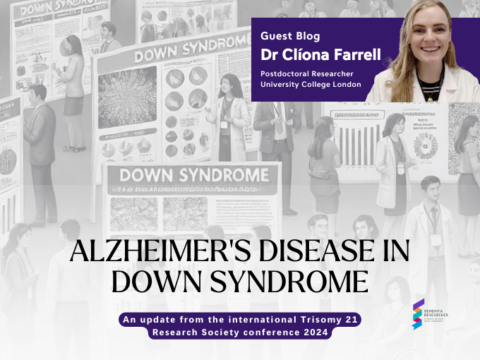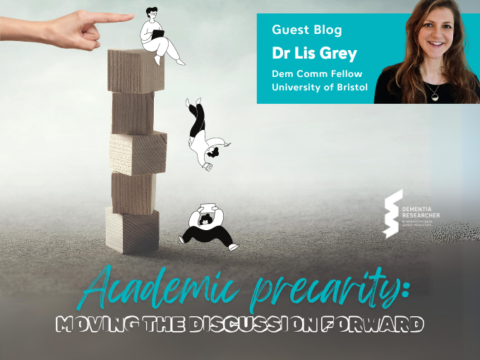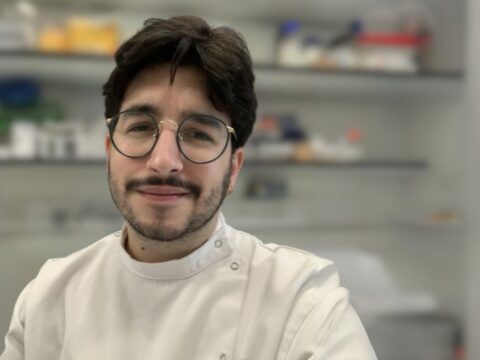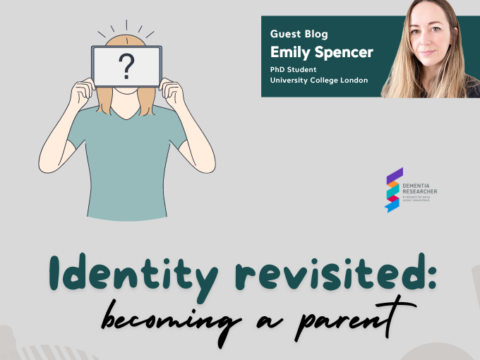In the final few months of writing up my PhD thesis, there was nothing I wanted more than to get back into the lab. I’d had enough of spending days sat behind a computer and really wanted to get my teeth into some exciting experiments again. I was lucky enough to have a postdoc position lined up and ready to go, so I handed my thesis in, moved up to Edinburgh and started my new job 7 days after submission.
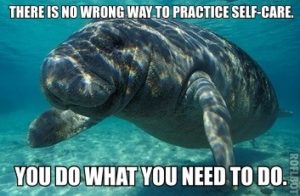 When people talk about doing postdocs, they rarely mention just how difficult it is to start afresh in a new lab, with new techniques and a totally new project that is your sole responsibility. At the end of your PhD, you feel like the top dog – you’ve spent 3-4 years developing your research, you know your techniques inside and out, people come to you if they need help planning experiments and you feel like you can do it all. Whilst the PhD prepares you for developing novel research projects, by the time you’ve reached the end you’ve conveniently suppressed those memories of being a first year student with little idea of how your project will map out and how you’ll push it forward. For me, starting my postdoc took me right back to those feelings and it completely threw me. I left my PhD feeling prepared, knowing my strengths and weaknesses and feeling ready to get straight back into it. What I wasn’t ready for was just how long it took to get myself settled and actually back to feeling like I knew what I was doing again (spoiler alert: that’s only really happened in the last 3 months, and I started my postdoc a year before writing this!).
When people talk about doing postdocs, they rarely mention just how difficult it is to start afresh in a new lab, with new techniques and a totally new project that is your sole responsibility. At the end of your PhD, you feel like the top dog – you’ve spent 3-4 years developing your research, you know your techniques inside and out, people come to you if they need help planning experiments and you feel like you can do it all. Whilst the PhD prepares you for developing novel research projects, by the time you’ve reached the end you’ve conveniently suppressed those memories of being a first year student with little idea of how your project will map out and how you’ll push it forward. For me, starting my postdoc took me right back to those feelings and it completely threw me. I left my PhD feeling prepared, knowing my strengths and weaknesses and feeling ready to get straight back into it. What I wasn’t ready for was just how long it took to get myself settled and actually back to feeling like I knew what I was doing again (spoiler alert: that’s only really happened in the last 3 months, and I started my postdoc a year before writing this!).
My postdoc research isn’t hugely dissimilar to my PhD; I’m still researching the same cell (microglia AKA the coolest cell in the world), but working in the context of a disease model was totally new to me. Diving into a whole new field of literature was daunting – remember how difficult it was as a shiny new PhD student to start writing your first lit review? What PubMed alerts do I need to have now?! I spent 3 years cultivating the perfect search terms and now they’re no help to me! Even though I was using the same experimental techniques as before, the protocols are slightly different in my new lab and I was setting one technique up from scratch. It is very humbling going from using the same technique weekly for 3 years to suddenly not being able to get it to work at all. Was my whole PhD just a fluke? Have they made a mistake hiring me? I might not actually be able to produce any data at all here… I spent 6 months feeling so disheartened because I knew I was better than this and I felt like I didn’t deserve to be there. It was so much harder than I had expected it to be and it left me wondering whether I should be in academia at all.
The more people I’ve spoken to, the more I’ve come to realise that this is a common feeling amongst new postdocs, but it’s not often talked about. We should acknowledge this for ourselves and for others in the same position – you’re not alone and it’s okay to find it difficult even if you think it shouldn’t be. It’s important to be patient with yourself and recognise that it’s okay for things to take a bit longer than you might have anticipated. This is where the importance of community and self-care comes in (and this is the bit I really want you to pay attention to).
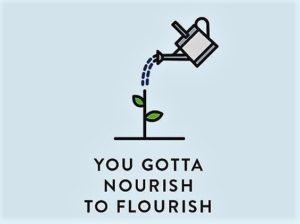
Asking for help is scary, particularly when you’re not feeling good enough. However I’ve found that 99% of fellow postdocs and PhD students are so willing to provide support – whether that is showing you for the millionth time where the pipette tips are kept, double checking the maths in your histology protocols because you’re just not sure if you’re being silly or not, or even just giving those little daily pep talks and moments of positivity. I’ve been really lucky to have moved from one supportive lab group to another, and I really don’t have words for just how grateful I am for these people. It’s so important to support and motivate and look after each other in academia – it’s a tough career path and we’re all in the same boat. I’ve tried very hard each day to come in with a positive mindset, not only for myself but for those around me because that’s how we get through the difficult days – together.
I’ve also (re-)learnt just how important it is to have a good self-care regime. If I could change one thing about the past year, it would be to have taken some time off between finishing my PhD and starting my postdoc, because it’s had a pretty huge impact on my mental health. It’s easy to forget to look after yourself and put the research first, sacrificing evenings, weekends, meals, sleep – “if I don’t do it the experiments won’t get done, if I don’t do it someone else will, if I don’t do it who knows what will happen”. It’s not a sustainable mindset, and it will likely end up with things taking twice as long because you’re not giving yourself the time to function like a normal human being. I’m a firm believer that working long hours and weekends should not be the norm in academia.
Something I’ve always said to new PhD students is that unless you HAVE to be in the lab or office super late, there is no point in staying just to show that you’re there – and this applies to us postdocs too. There are times in this career where working late or working weekends might be unavoidable, but that doesn’t mean that it should be the working model you start with. If you start straight off the bat working all hours of the day, where are you going to go when things get really busy? It’s important to give yourself the flexibility to work long hours if you need to, but to also take shorter days to have some ‘you’ time if you need to. Balance is key. For me, evenings and weekends are my time to sit on the sofa in my pyjamas watching Netflix and to see my family and friends, and I feel so much better prepared to tackle my research when I’ve taken the time to recharge.
No career should make you feel that you have to work yourself to the bone in order to be successful. Balance is really important, and it is achievable in academia too. Make sure you plan some time each week to do something you love. Make sure that you give yourself time to enjoy your life – and don’t feel guilty whilst you’re doing it. We should absolutely never forget that no job is worth more than your health – physical or mental. Keep that self-care at the top of your priority list always. You can be a good scientist when you’re exhausted but you’re truly brilliant when you treat yourself properly too.
Author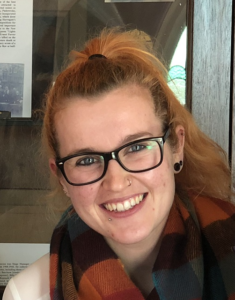
Dr Katie Askew is a Postdoctoral Research Fellow in the Horsburgh Lab at The University of Edinburgh. Katie completed her PhD at the University of Southampton and moved to Edinburgh in November 2018, at this time her research focus shifted to understanding how microglial turnover changes in the context of a disease model, specifically in a model of vascular cognitive impairment. Outside work her two house bunnies, Lola and Floki keep her very busy, and provide a great source of entertaining social media posts.

 Print This Post
Print This Post